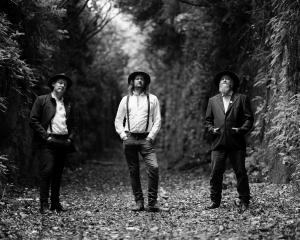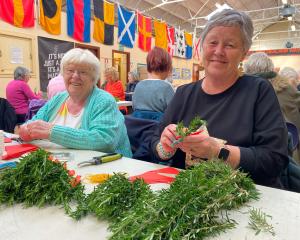Probing the particular problem of paua procreation in the East Otago Taiapure is the aim of a project run by the University of Otago.
Within the coastal fishing area that extends along the seafront from Cornish Head to Potato Point it is prohibited to take paua or kelp, and there are specific limits for other shellfish species.
University of Otago lecturer and researcher Dr Gaya Gnanalingam said the project had three main elements.
"We are monitoring paua stocks in the area, we are looking at stock enhancement, particularly reseeding and translocation of paua, and thenwe are also looking at strategies for potentially reopening the paua fishery in this area."
Researchers have been visiting the area on a regular basis looking for healthy adult stock that could be used to increase paua numbers.
"We are looking for brood stock , that we would then take away to the lab to try and spawn in the lab to create lots of little baby paua that we would then put back into the water as part of that stock enhancement reseeding programme."
There were a number of factors that could affect paua numbers.
Paua were very slow growing and their reproduction was variable, so recovery from previous overfishing took some time, she said.
Another challenge was increased sedimentation around the area.
"Paua don't particularly like a lot of sediment, so that is also going to have a negative impact on their population."
Poaching was also an issue for paua stocks around the country.
"That is something that also needs to be carefully monitored."
Paua were fairly sedentary, but they could move when they wanted to.
"They aggregate together, so you'll find them in groups."
But there was a lot of variability within groups.
Even within the the taiapure which was about a 25km stretch, paua would exhibit different growth rates on the reefs.
This made it a challenge to manage.
"We have to understand these nuances and this variability to really get to know our paua and manage them."
Dr Gnanalingam said the help of the local community had been very important for this project.
“They've lost access to something that is so valuable to them.
"And so if we are at some point in the future able to reopen this fishery, I mean, that would be an amazing thing.”
The research aimed to help restore this taonga species, using a combination of matauranga, local knowledge, and ecological science to help future opportunities to reopen local paua fisheries in a sustainable way.
The project is funded by Coastal People: Southern Skies — a Centre of Research Excellence (CoRE) based at the University of Otago.
















